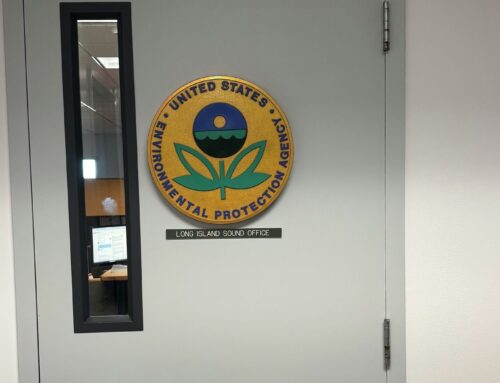Commentary: Alligator Alcatraz detention center is the making of an environmental crisis
July 6, 2025

The proposed Everglades detention center, deemed Alligator Alcatraz, has a lot of red flags. There are the glaring issues, including problems of environmental injustice — putting 5,000 immigrants, people who are overwhelmingly disenfranchised, underpaid and susceptible to physical and sexual abuses, in the middle of a harsh and unknown environment; overdevelopment — constructing the infrastructure and further avenues for ongoing and mass incarceration (though the space may be temporary, rarely do we deconstruct buildings and return such spaces to nature); and disrespect and blatant disregard of autonomous local indigenous communities — building the detention center on Miccosukee ancestral lands.
While each of these issues is worthy of a lengthier discussion, I believe it’s worth digging into the lesser-known and inescapable dangers that could impact all Floridians if such a project is greenlighted. Although lawmakers see the new detention center in the Everglades as a temporary fix, we must explore this project from multiple angles, including recognizing how this can quickly turn into a human and environmental disaster and a potential liability to Floridians. Simply put, Alligator Alcatraz is the making of an environmental crisis.

Victoria_Machado-2
DeSantis’s claim that the project will have “zero” impact holds zero weight. Anyone familiar with the Everglades knows that the terrain is a precarious system. The weight of more than 5,000 people in an area requires increased infrastructure. Needs for food and water, and the disposal of waste lead to increased transportation, attracting more people to the area, increasing the pressure on locally sensitive spaces. It’s the same story of construction throughout South Florida. Whether it’s a parking lot, jetport or detention center, construction will impact the local environment. There is no doubt about this. If we’re lucky, the changes will be small, but all too often the impacts include drastically altering local habitats that keystone species rely on, disrupting ecosystems that help keep balance in our world, and causing a mess of trouble when it comes to interrupting water flow in and around the Everglades. It is evident such a project like Alligator Alcatraz will certainly have an environmental footprint, the question is to what extent.
Not only will the project impact our beloved Everglades, an area that countless people including revered Florida environmentalists like Marjory Stoneman Douglas fought hard to protect, but Alligator Alcatraz may prove to be a costly human rights issue that could hit Floridians’ pocketbooks. We are only one month into what NOAA predicts to be an above-normal 2025 Atlantic hurricane season, which is forecasted to have 13-19 total named storms. Questions arise: Is it wise to set up a makeshift detention center in the middle of the Everglades during hurricane season? Does the $450 million to lock up 5,000 human beings account for moving them during such storms? What happens when one of those storms turns into a major hurricane? I’m thinking about such storms as Hurricane Helene or Hurricane Ian, from which the Carolinas and Florida’s West coast are still recovering.
One need only look to New Orleans and the horrors that occurred at the Parish Prison during Hurricane Katrina to recognize that this detention center is a recipe for disaster. In 2005, as the floodwaters rose, incarcerated people were abandoned in cells due to inadequate planning. For days, many were trapped with no electricity, no food, no medical care, and exposure to raw sewage. Zero oversight led to countless human-rights violations, compounding the terrible impacts of this federal disaster zone. Is Alligator Alcatraz the type of project that FEMA will actually support? Not only is this detention center a huge liability for the government, but it will ultimately hurt Floridians, who could foot the bill for these oversights. A costly and preventable mistake.
In a state with rampant development, Alligator Alcatraz is one project that need not go through. It is a clear disrespect of human life, Florida’s cherished environment, and the incomes of hard-working Floridians.
Victoria Machado is a third-generation South Floridian and an assistant professor of Environmental Studies at Rollins College.
RevContent Feed
Search
RECENT PRESS RELEASES
Related Post

![OCPS ACE becomes a Community Partnership School in 2017, credit OCPS[41] In this 2017 photo, students mark the day when the Orange County Academic Center for Excellence became a Community Partnership School. (Courtesy of Orange County Public Schools)](https://www.orlandosentinel.com/wp-content/uploads/2025/07/OCPS-ACE-becomes-a-Community-Partnership-School-in-2017-credit-OCPS41.jpg?w=469)





